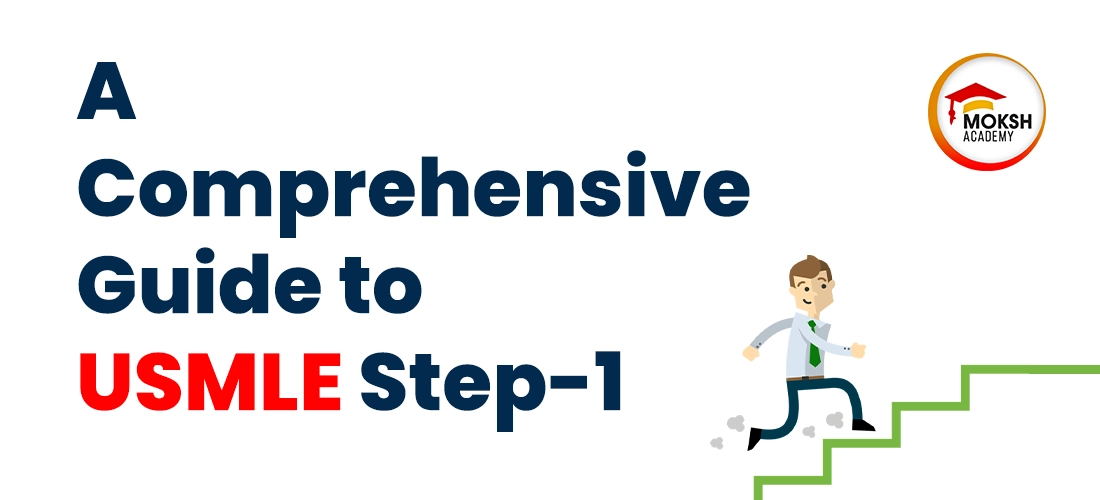
The United States Medical Licensing Examination (USMLE) Step 1 is a critical milestone for medical students on their path to becoming licensed physicians. This exam assesses a student's knowledge and understanding of the basic sciences, laying the foundation for clinical practice. In this comprehensive guide, we will explore everything you need to know about preparing for and excelling in the USMLE Step 1 exam.
Understanding the USMLE
The USMLE is divided into three steps: Step 1, Step 2 Clinical Knowledge (CK), and Step 3. Step 1 focuses on assessing a student's understanding of the basic sciences, while Step 2 CK evaluates clinical knowledge and skills, and Step 3 tests the ability to apply clinical knowledge and decision-making in unsupervised medical practice.
The Importance of USMLE Step 1
USMLE Step 1 holds significant importance in a medical student's journey. It not only serves as a benchmark for medical knowledge but also plays a crucial role in determining residency program options and specialty choices. A strong performance on Step 1 can open doors to competitive specialties and prestigious residency programs. Therefore, thorough preparation and achieving a high score on this exam are essential for success.
Preparing for USMLE Step 1
Preparing for USMLE Step 1 requires a well-structured and comprehensive approach. Here are key steps to help you prepare effectively:
Step 1: Understand the Exam Format
Before diving into your preparation, familiarize yourself with the exam format and structure. USMLE Step 1 is an eight-hour exam divided into seven 60-minute blocks. Each block contains a varying number of multiple-choice questions (MCQs) that assess your knowledge across different disciplines, including anatomy, physiology, pathology, pharmacology, and more. Moksh offers an online interactive sessions that can help to understand the exam format and structure which includes video lectures, practice questions, and moksh test .
Step 2: Create a Personalized study schedule
Moksh provides a personalized study schedule that is crucial for efficient and organized preparation. Start by assessing your strengths and weaknesses in each subject area. Moksh provides you with a list of high-yield topics that are more likely to be tested on the exam. Allocate more time to challenging topics while ensuring you review and reinforce your understanding of the subjects you are already comfortable with.. Set specific goals for each study session and create a realistic timeline leading up to your exam date. Breaking down your study plan into smaller, manageable tasks will help you stay focused and motivated throughout the preparation process.
Step 3: Practice with Questions
Moksh recommends using practice questions as an invaluable tool for exam preparation. They not only help you gauge your progress but also familiarize you with the question format and test your ability to apply knowledge in a clinical context. Moksh provides a variety of USMLE-style question banks and practice exams that can help you simulate the exam environment and identify areas where you need improvement.
To get the most out of practice questions, Moksh suggests the following:
- Analyze your performance: After each practice question or exam, take some time to analyze your performance. This includes reviewing the correct answers and understanding why you got the incorrect answers wrong.
- Review the explanations: Moksh also recommends reviewing the explanations for incorrect answers. This can help you understand the concepts that you are struggling with and learn how to answer similar questions correctly in the future.
- Focus on strengthening weak areas: Once you have identified your weak areas, Moksh suggests focusing on strengthening those areas. This may involve reviewing the relevant material in your textbooks or online resources, or practicing with additional practice questions.
Step 4: Simulate Exam Conditions
Moksh provides full-length practice exams that you can take under timed conditions. This will help you assess your performance and identify areas for improvement. It will also help you manage your time effectively during the actual exam and reduce test-day anxiety.
Here are some tips from Moksh for simulating exam conditions:
- Find a quiet place where you will not be interrupted.
- Set a timer for each block of 60 minutes.
- Take breaks every 25 minutes to stretch, walk around, or get a snack.
- Answer the questions in the same order that they will appear on the actual exam.
- Review your answers after each block.
- Take a full-length practice exam at least once a week in the weeks leading up to your exam.
Step 5: Take Care of Yourself
Moksh suggests prioritizing self-care while you are preparing for USMLE Step 1. This means maintaining a healthy lifestyle by getting enough sleep, eating nutritious meals, and engaging in regular physical activity. Moksh also recommends taking breaks during study sessions to relax and rejuvenate. Balancing your study schedule with leisure activities and hobbies will help prevent burnout and maintain your overall well-being.
To maximize your performance on USMLE Step 1, Moksh suggests the following strategies:
- Apply integrated learning. Rather than studying subjects in isolation, strive to understand the interconnectedness of different disciplines. This will help you apply your knowledge to clinical scenarios and demonstrate a comprehensive understanding of medical concepts
- Develop test-taking strategies. In addition to content knowledge, developing effective test-taking strategies is crucial for success on USMLE Step 1. Moksh provides a guide to help you learn how to approach different question types, eliminate answer choices, and manage your time effectively.
Step 6: Seek guidance and support
. Moksh offers a mentorship program for the USMLE Step 1 exam. This program can provide you with a complete handholding experience, making your preparation process much easier.
Your mentor will be a medical student who has already successfully completed the USMLE Step 1 exam. They will be able to provide you with guidance on all aspects of the preparation process, from creating a study plan to managing your time effectively. They will also be able to answer any questions you have about the content of the exam.
In addition to providing guidance, your mentor will also be there to support you throughout the preparation process. They will be able to offer you encouragement and motivation when you need it, and they will be there to celebrate your successes.
The mentorship program is a valuable resource that can help you achieve your goal of passing the USMLE Step 1 exam.
Conclusion: By following these suggestions, you can maximize your chances of success on the USMLE Step 1 exam.



